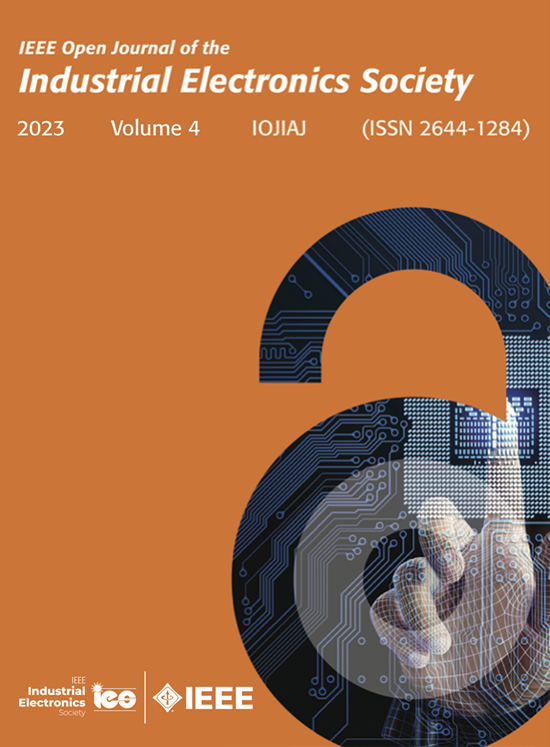基于通信的并联整流器自适应容错控制
IF 5.2
Q1 ENGINEERING, ELECTRICAL & ELECTRONIC
IEEE Open Journal of the Industrial Electronics Society
Pub Date : 2023-12-14
DOI:10.1109/OJIES.2023.3342071
引用次数: 0
摘要
本文提出了一种用于控制并联有源前端整流器(AFR)的自适应容错通信方法。该方法基于控制器区域网络总线协议的主从通信原理。主单元负责产生电流参考信号并与从单元共享,而从单元则完全负责根据接收到的参考设定点产生功率。主设备可根据所连接整流器之间的协商算法进行自动选择和更改。如果主站出现通信故障,从站会选择另一个主站。另一方面,通过切换到无通信运行模式,在线估算当前参考信号,而不是通过通信网络接收信号,来容忍从站的通信故障。建议的算法通过仿真和实验在带有三个并行 AFR 的原型上得到了验证。本文章由计算机程序翻译,如有差异,请以英文原文为准。
Adaptive Fault-Tolerant Communication Based-Control for Parallel Connected Rectifiers
This article proposes an adaptive and fault-tolerant communication method for controlling parallel-connected active front-end rectifiers (AFRs). The proposed method relies on the principle of master-slave communication based on the controller area network bus protocol. The master unit is responsible for generating current reference signal and for sharing it with the slaves, while the slave units are solely responsible for generating the power based on the received reference set points. The master can be selected and changed automatically based on a negotiation algorithm among the connected rectifiers. Then, if a communication fault occurs in the master, another master is chosen by the slaves. On the other hand, slaves’ communication faults are tolerated by switching to communication-less mode of operation with online estimation of the current reference signal instead of receiving it over the communication network. The proposed algorithms are validated by simulation and experimentally on a prototype with three parallel AFRs.
求助全文
通过发布文献求助,成功后即可免费获取论文全文。
去求助
来源期刊

IEEE Open Journal of the Industrial Electronics Society
ENGINEERING, ELECTRICAL & ELECTRONIC-
CiteScore
10.80
自引率
2.40%
发文量
33
审稿时长
12 weeks
期刊介绍:
The IEEE Open Journal of the Industrial Electronics Society is dedicated to advancing information-intensive, knowledge-based automation, and digitalization, aiming to enhance various industrial and infrastructural ecosystems including energy, mobility, health, and home/building infrastructure. Encompassing a range of techniques leveraging data and information acquisition, analysis, manipulation, and distribution, the journal strives to achieve greater flexibility, efficiency, effectiveness, reliability, and security within digitalized and networked environments.
Our scope provides a platform for discourse and dissemination of the latest developments in numerous research and innovation areas. These include electrical components and systems, smart grids, industrial cyber-physical systems, motion control, robotics and mechatronics, sensors and actuators, factory and building communication and automation, industrial digitalization, flexible and reconfigurable manufacturing, assistant systems, industrial applications of artificial intelligence and data science, as well as the implementation of machine learning, artificial neural networks, and fuzzy logic. Additionally, we explore human factors in digitalized and networked ecosystems. Join us in exploring and shaping the future of industrial electronics and digitalization.
 求助内容:
求助内容: 应助结果提醒方式:
应助结果提醒方式:


